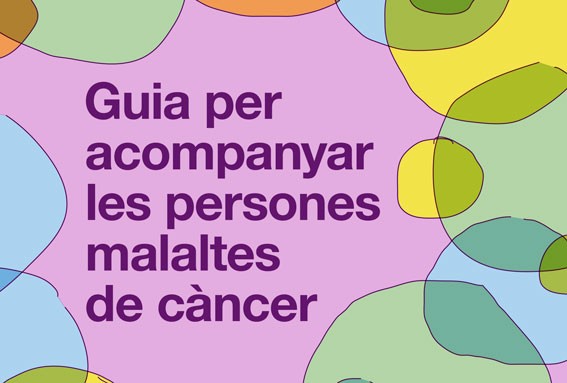To mark World Cancer Day today (4 February), a care co-op in Catalonia has developed a guide on how to help employees with cancer.
One in two men and one in three women will have cancer at some point in their lives. According to the Spanish Association Against Cancer (AECC) over 40,000 people were diagnosed with cancer in Catalonia in 2018, 1.5% more than in 2017.
Suara Cooperative provides care services to over 44,200 people across Catalonia. It was formed through the merger of three healthcare co-ops, one of which was established 35 years ago. Clients include public bodies, foundations and private businesses.

Designed to help the co-op set out a framework to support its staff, the guide explores some of the challenges faced by employees diagnosed with cancer.
Rosa Fuertes. who works for Saura. shared her own experience of cancer.
“The first sentences I heard were: ‘Don’t worry’, ‘It will be fine’, ‘I know a case’, ‘You will see how you will be fine within four days,’ ‘Research is so advanced nowadays.’” she wrote. “I wanted to reply: ‘I didn’t know you were a prophet.’”
Related: Why healthcare co-ops are on the rise around the world
The guide explains that after letting their employer know about their condition, people may experience changes in the workplace. This can lead to anguish, fear and uncertainty, added to their doctor’s appointments and medical treatments, and bureaucratic procedures in the workplace.
Employers are advised to show empathy, listen to their employees’ concerns and be aware of what they are going through so they can adapt and make temporary changes to their work duties. It is also important to treat the matter with confidentiality and let the employee decide what information to share with colleagues or clients.
The document, which sets out protocols to support employees during their most vulnerable times, as well as when they return to work, had input from a working group of cancer survivors, employees who had helped companions and colleagues, Suara professionals and other staff.
The guide suggests acting with clear objectives to support people from day one until they return to work. Actions proposed include raising awareness among other staff members about the importance of supporting colleagues during this process, allocating resources and identifying areas that need improvement.
Worker Elisabeth Torrents wrote: “At the time I communicated my illness, many colleagues called me to support me: ‘Don’t worry,’ ‘Calm down’. As the treatment went on, I received less calls, but my leader did not forget to make time for me and continued to give me support throughout the process. I was not alone.”
Saura also provides training and mentorship to help other enterprises improve in terms of the support they offer to people with cancer. The co-op is governed through a members’ assembly, which elects a governing council that oversees the day-to-day work of the management team.
All employees are offered the chance to become members of the co-operative, however, not all of them do so due to having to contribute €8,000 in capital. This can be done in instalments.